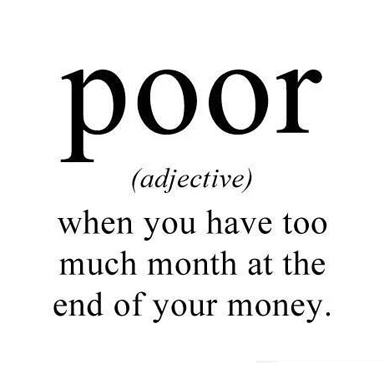Things like spending less and earning more are extremely important, which is why those of us who write about this stuff spend so much time focusing on the topics. We want you to create an excess every month that you can then invest for the benefit of your future self. Because I have that ability, I’ve gone to the future and asked your older self about this, and they agree with me. I am the lamest time traveler ever.
Once you’ve got some savings, it’s time to invest it. Unfortunately, most people don’t know the first thing about investing. The stock market is a big scary place, and sometimes stocks go down a lot. How are you supposed to know which stocks or mutual funds to pick? Sure, you could learn about it, but that takes time, and there’s a lot on TV.
So you do what most people do – you find a financial advisor and entrust them with investing your money. Okay, but how do you find a good one? I can’t guarantee you’ll find one that will lead you to crazy riches, but here are a few tips on how to pick a good one.
Fee Based Is Ideal
Financial advisors (or adviser) are paid one of two ways – either on commissions from the products they sell you, or a flat hourly fee paid whenever you need their service. Both methods have their advantages and disadvantages.
If you have a portfolio of $50,000 and you’re paying 1% a year in fees, that’s $500 per year that goes to your financial advisor. Meanwhile, if you spend an hour a year with a fee based advisor ($100 per hour) and use his guidance to buy ETFs with ultra low fees (0.10%), you’re already a few hundred bucks a year ahead, based on fee savings alone.
If you’ve only got $10,000 to invest, spending $100 per hour for portfolio guidance probably isn’t a good idea. Just make sure that your advisor puts you in managed funds that have management fees of less than 1%. If you’re paying anything more it’s because your advisor is getting extra commission to recommend more expensive funds.
Ask Around
If you live in a small town like me, this can be especially effective. If people you care about all rave about somebody, you should at least check that person out. However, before you act on a friend’s suggestion, make sure they know something about finance. They might be happy that the fund their advisor suggested last year is up 15%, but that’s not really that impressive if the broad stock market is up 20%.
Ask your friends what fund(s) they’re invested in, and then compare that fund’s performance to its respective index. Chances are it won’t be doing better than the index, but you’re looking for something that gets as close as possible, net of fees. This is another reason why fees are so important. So make sure you check the fees of your friends’ funds too, and compare them to similar funds.
Keep Control
If you and your advisor decide that individual stocks are okay for your portfolio, make sure that each and every trade is okayed with you personally. Sometimes advisors will attempt to generate extra commission for themselves by “churning” your account, which is when they suggest you trade stocks much more often than you should.
Generally though, don’t do anything you’re not comfortable with. If you have any concerns about anything your advisor wants, walk away from the conversation, take a few days, and talk it over with somebody who knows finance well.
Hold Them Accountable
Too many people just give their money to an advisor and forget all about it. Then once a year they look at their statement, and promptly forget about everything for another year.
If you want your investments to perform well, you have to keep an eye on them. Yes, your advisor is supposed to do that for you, but she’s busy. If you’re one of 400 clients she has, who do you think is going to care more about the state of your portfolio? Nobody cares more about your money than you do.
This doesn’t mean you need to be an expert. Just do a few minutes of research every couple of months and see just how your funds are performing compared to their benchmark indexes. And if one is consistently under performing, schedule a meeting with your advisor and ask pointed questions about it. Should you move into a different fund? Why is it under performing? If your advisor doesn’t have a straight answer to these questions, then maybe it’s time to begin the search for a different one. Don’t be afraid to fire your advisor.
Conclusion
I’d love it if every investor got the education needed to manage their portfolio themselves. It’s really not that hard, but I can understand why some people don’t want to learn. Hopefully these tips make it a little easier to choose a financial advisor that will guide your investments for years to come.






















